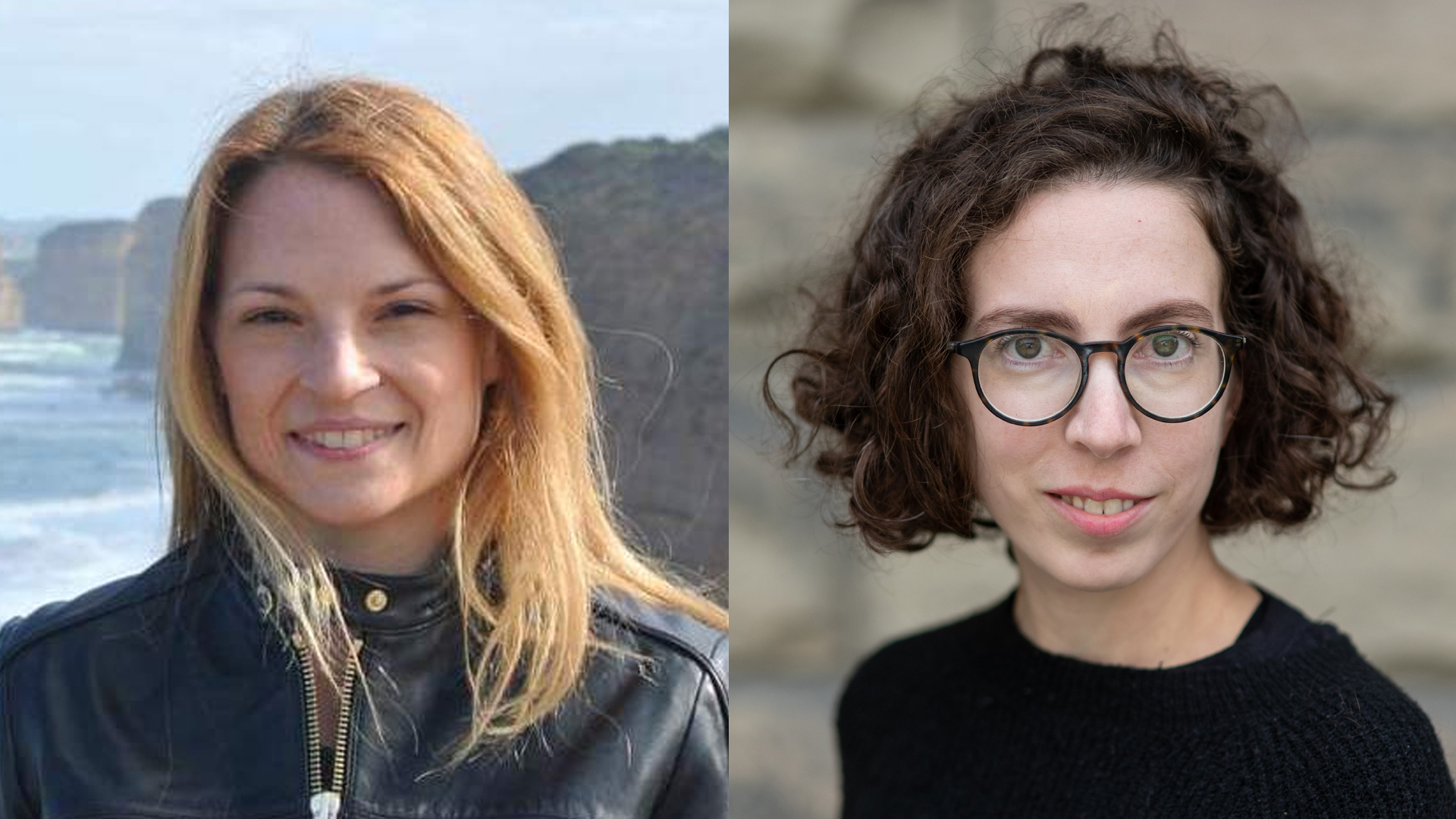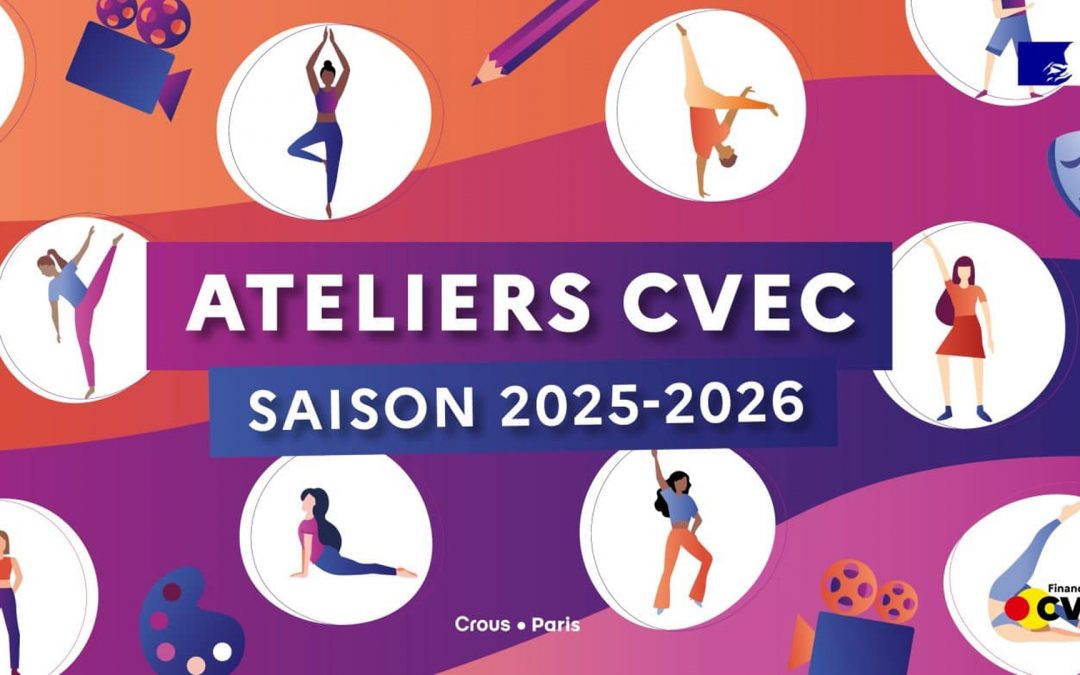Differences in placebo effects across studies can bias the results of relative effectiveness between interventions. Evidence synthesis and network meta-analysis offer a unique opportunity to study this phenomenon. Anna Chaimani, a Research Scientist at Inserm, Université Paris Cité, and Adriani Nikolakopoulou, a Post-doctoral Researcher at the Institute of Medical Biometry and Statistics (IMBI) at the University of Freiburg, Germany, are collaborating on this methodology. Learn more about their research!

© Anna Chaimani (left) and Adriani Nikolakopoulou (right)
As part of the International guest researcher programme, Dr. Anna Chaimani is hosting Dr. Adriani Nikolakopoulou in Paris for one month. They have known each other since their doctoral studies at the University of Ioannina in Greece, the latter having a well-known research laboratory specialized in evidence synthesis and meta-analysis. At Anna’s invitation, Adriani agreed with pleasure to come to Université Paris Cité. It turned out that their ideas and work are complementary. It was an excellent opportunity for them to work together on Adriani’s postdoctoral project studying the role of the placebo effect in evidence synthesis.
Gathering all the information related to a research question
Evidence synthesis is a way of combining and collecting all the data from several studies that tackle the same research question. It enables to get an overall understanding of their results, and to synthesize all the available data. The data are usually taken from randomized clinical trials and/or observational studies. Evidence synthesis helps to determine the relative effectiveness of certain interventions or medications, as well as potential subgroups of populations, for which the treatment works best.
Network meta-analysis is an evidence synthesis tool and a statistical technique for comparing three or more interventions simultaneously in a single analysis by combining direct and indirect evidence from a network of studies. Network meta-analysis produces estimates of relative effects between any pair of interventions in the network, and generally yields more precise estimates than a single direct or indirect estimate. It also allows the derivation of a hierarchy of interventions.
“We try to gather a set of studies that are homogeneous enough to be synthesized. In a network meta-analysis, we not only collect data from studies that compare the same pair of healthcare interventions, but we build what we call a network of interventions. Most of our work is methodological, which means that we develop new methodologies in the area of evidence synthesis and network meta-analysis, while the other part is applied work,” explains Anna Chaimani.
Conducting research from different angles
Anna and Adriani regurarly work with clinicians to answer clinical research questions; for instance, they have worked with psychiatrists in specifying the optimal treatment of depression, among a range of alternatives. After preparing a protocol for the whole process, their clinical collaborators collect studies and extract data, Anna and Adriani perform the statistical analyses and the entire team interprets the results. In parallel, Anna and Adriani develop new methods, which they test using simulation studies, in order to find the most suitable ways of analysing the evidence.
“What’s great about this field is that it has to be interdisciplinary. Many researchers are working on the same project, but from a different angle.” according to Adriani Nikolakopoulou. “The advantage of building methods is that they can be used for any condition and are not limited to a specific field.” adds Anna Chaimani.
“Comparative Effectiveness Research”, an International Programme in Public Health
Anna Chaimani is also a teaching faculty member. She is part of an internationally renowned team of European faculty in the Master of Public Health in Comparative Effectiveness Research programme in Paris which is taught entirely in English.
“It’s an interesting, fairly intense master’s programme that attracts international students. The first semester consists of classes only, whereas the second semester students take part in internships. Every week there are different modules. I am responsible for two modules: advanced meta-analysis and network meta-analysis. The teaching method is very interactive. Some of the students stay in the laboratory, which is good, because this master’s degree can attract new colleagues,” explains Anna Chaimani.
Anna and Adriani have discussed the possibility for students to visit Freiburg during their internships in the master’s programme.
Next steps
Over the upcoming months, Anna Chaimani and Adriani Nikolakopoulou will continue to work on their project which will enable them to deliver reliable results. They are also preparing several joint publications in peer-reviewed journals. Adriani has received an important research grant in Freiburg for the next six years for which Anna is participating. This will enable them to continue to work together and to strengthen their collaborations.
“We will study the placebo effect, which has attracted the interest of many researchers since the 1950s. The question is how to quantify how much of our response to a treatment is due to the placebo effect. In some cases, this effect can bias the estimated effect of the treatment. The goal is to understand in which situations we should be aware of the placebo effect. The ultimate goal is to correct and adjust the biased treatment effect so that it can be used for clinical decision making by healthcare professionals and the medical community,” said Adriani Nikolakopoulou.
“We would like to thank Université Paris Cité for this opportunity, without this funding, it would not have been possible for Adriani to come to Paris for a month,” says Anna Chaimani.
About
Anna Chaimani is Senior Research Scientist at Inserm, Université Paris Cité. She studied mathematics and then obtained a MSc in Biostatistics from the University of Athens in 2011 and a PhD in Epidemiology and Biostatistics from the University of Ioannina School of Medicine, Greece in 2014. Her research interests focus on methodology and software development for evidence synthesis with a greater focus on network meta-analysis. She is the leader of the evidence synthesis team of the Research Center in Epidemiology and Statistics (CRESS) and she teaches at the MSc of Comparative Effectiveness Research of Université Paris Cité. Currently, she is working on the development of new methods about ranking interventions, network meta-analysis of sparse data, and models for synthesizing heterogeneous studies.
Dr. Adriani Nikolakopoulou is a post-doctoral researcher at the Institute of Medical Biometry and Statistics (IMBI) at the University of Freiburg, Germany. She studied Applied Mathematics at the National Technical University of Athens, Greece, and Biostatistics at the University of Athens, Greece. She worked as a researcher at the University of Ioannina, Greece, and received a PhD in Biostatistics from the Institute of Social and Preventive Medicine (ISPM) at the University of Bern, Switzerland. Her research focuses on the development of methodology for evidence synthesis. She has published peer-reviewed articles in methodological, epidemiological and clinical journals and has contributed to two book chapters. With a research grant from the Swiss National Science Foundation (SNSF), she explores the role of the placebo effect in clinical investigation.
Read more

En France, les inégalités économiques pourraient contribuer à la hausse récente de la mortalité néonatale
Des équipes de l’Université Paris Cité, de l’Inserm, de l’Inrae, de l’AP-HP et de l’Université Paris Nord ont montré que l’augmentation de la mortalité néonatale en France pourrait être liée aux inégalités socio-économiques. Cette étude, publiée le 16 septembre 2025...
read more
Ateliers CVEC du Crous 2025-2026 : exprimez votre créativité tout au long de l’année !
Chaque année, le Crous de Paris propose aux étudiants de l’Académie de Paris une large palette d’ateliers culturels et artistiques gratuits, financés par la Contribution Vie Étudiante et de Campus (CVEC). La nouvelle saison est ouverte : place à la créativité et au...
read more
CVEC Crous #Automne2025 : financez vos initiatives pour enrichir la vie étudiante !
Vous avez une idée de projet pour améliorer la vie étudiante à Paris ? L’appel à projets CVEC (Contribution Vie Étudiante et de Campus) d'automne du Crous de Paris est ouvert ! Associations étudiantes, agents, services, directions ou composantes d'UPCité peuvent, sous...
read more
Vive la rentrée avec la Semaine de la santé planétaire !
Du 15 au 20 septembre 2025, l’Université Paris Cité organise la première édition de la Semaine de la santé planétaire. Une programmation festive et scientifique, déployée sur tous les sites et campus, rassemblera étudiantes, étudiants et personnels autour d’animations variées pour penser ensemble les liens entre êtres vivants et planète.
read more